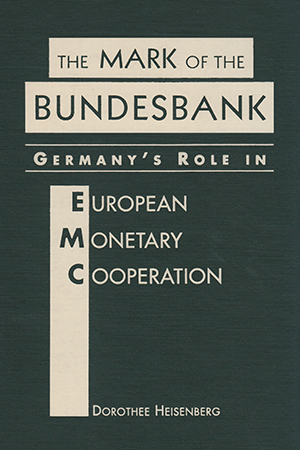
- 1999/214 pages
The Mark of the Bundesbank:
Germany's Role in European Monetary Cooperation
Hardcover: $23.00
ISBN: 978-1-55587-689-0
With the Bundesbank now the dominant German actor in international monetary cooperation, Germany’s partner states have begun to consider the requirements of the bank—rather than the government—paramount. Dorothee Heisenberg maintains that the evolution of the Bundesbank is key to understanding how and why Europeans chose to achieve monetary union.
Heisenberg demonstrates that the domestic relationship between the Bundesbank and the German government is a significant determinant of cooperation at the European level. Drawing on historical evidence from 1968 to the present, she reveals that the bank has at times been willing to change its domestic monetary policies solely on the basis of the international situation. Similarly, it has become increasingly likely to challenge the government’s monetary policy, and was the primary force in negotiating EMU.





